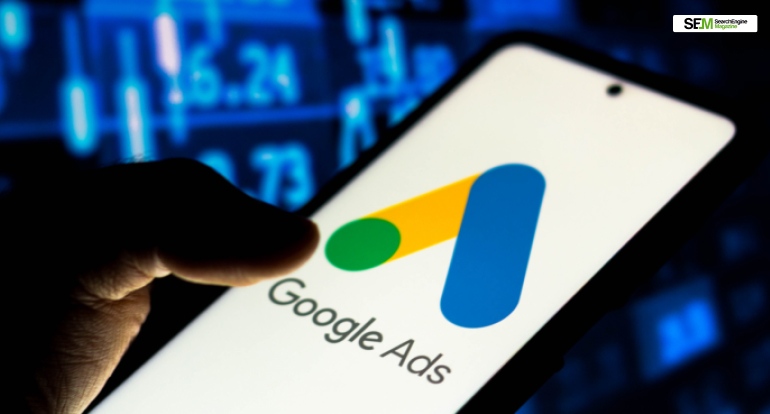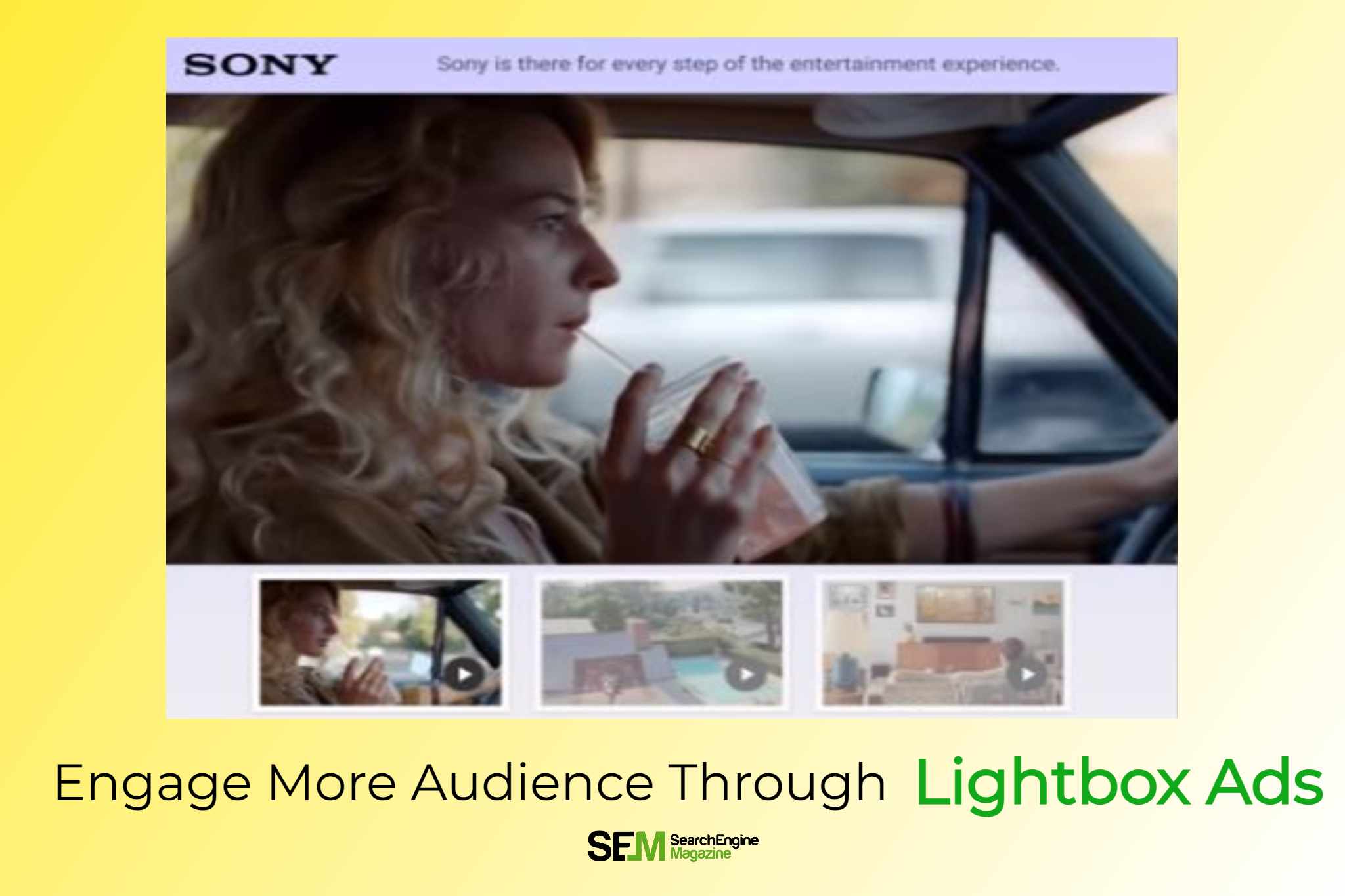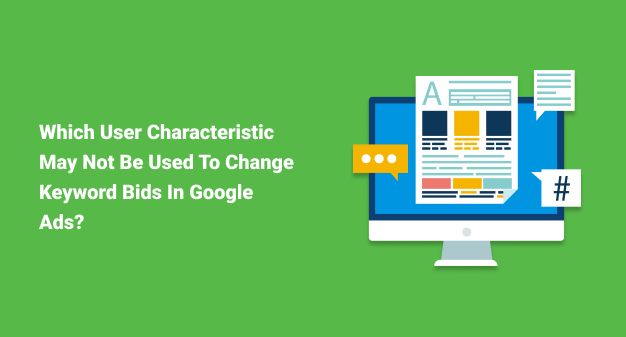How To Know If Someone Blocked You On iMessage? 5 Secret Hacks!
Apr 16, 2025

Apr 16, 2025

Apr 16, 2025

Apr 15, 2025

Apr 11, 2025

Apr 11, 2025

Apr 11, 2025

Apr 08, 2025

Mar 29, 2025
Sorry, but nothing matched your search "". Please try again with some different keywords.

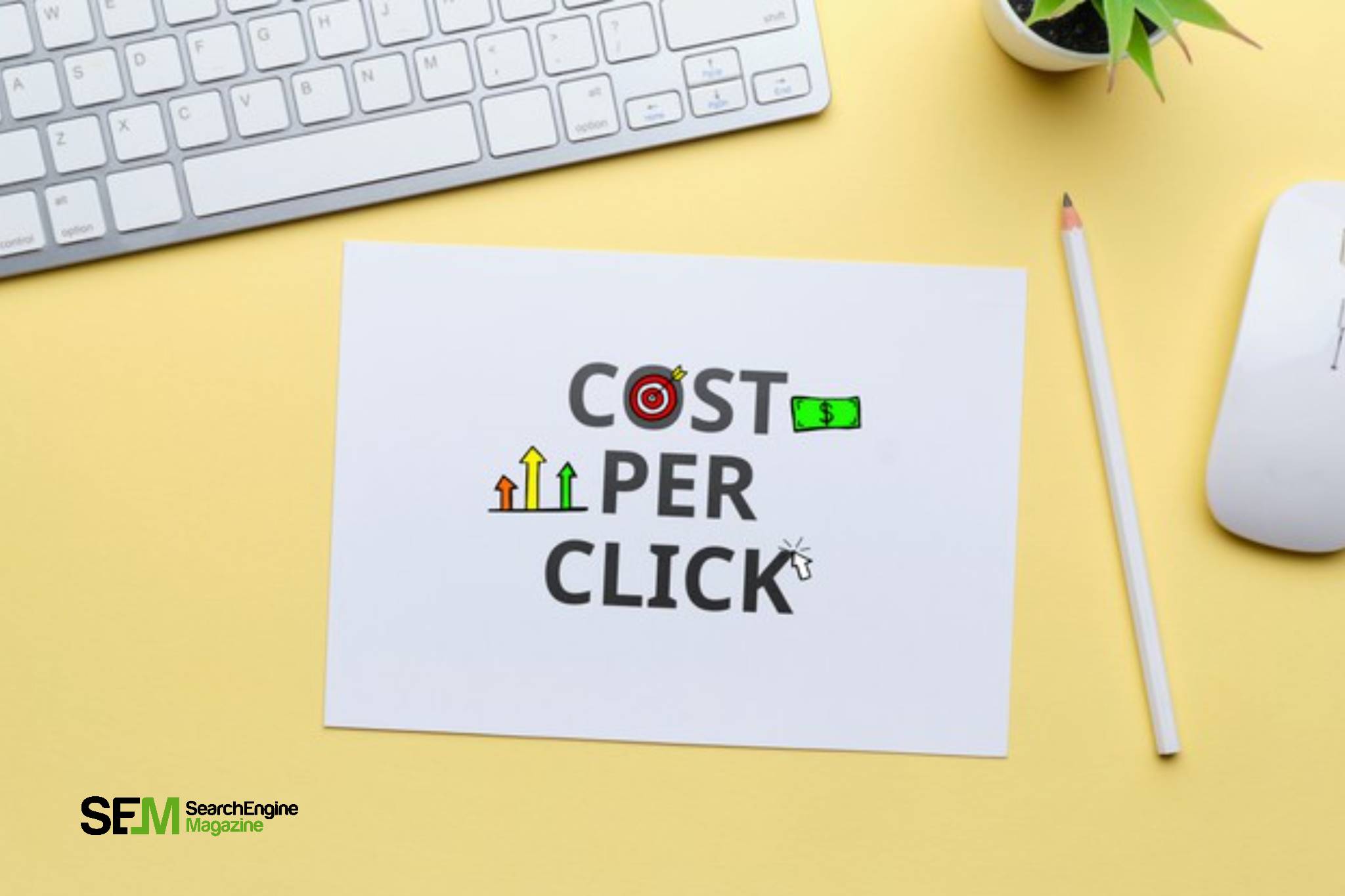
Correct Answer – maximum CPC bid of the ad showing one position lower on the page
Explanation –
Now you know that one factor the google ads system uses to calculate an ad’s actual cost-per-click (CPC) is the maximum CPC bid of the ad showing one position lower on the page.
The maximum bid of an ad means the highest amount of money an advertiser is willing to pay for each click on the ad. Which ultimately turns out to be much lesser than the actual CPC. The actual CPC practically can be equal to or less than the maximum bid.
Suppose there are two advertisers with an ad of the same quality and one of them bids US$2 for his ads, then the other one has to pay a little more than that amount(US$2) in order to rank higher in the search results and to maintain that position.
Cost-Per-Click (CPC) is a term that is related to the PPC campaign. CPC is a very meaningful term used in the context of search engine marketing.
Cost Per Click or CPC means the amount of money an advertiser pays for each click he gets on his ads. A click on an ad simply means a traffic to the website.
PPC campaigns are an effective way to boost huge traffic to your website and generate more leads for your business. This strategy is highly recommendable for those who want an impactful result in a short period of time.
The maximum bid for an ad refers to the maximum amount of money an advertiser is willing to pay for each click on his ads. The actual CPC that he pays at the end is ultimately lesser than the maximum bid.
There is an equation to calculate the actual Cost Per Click.
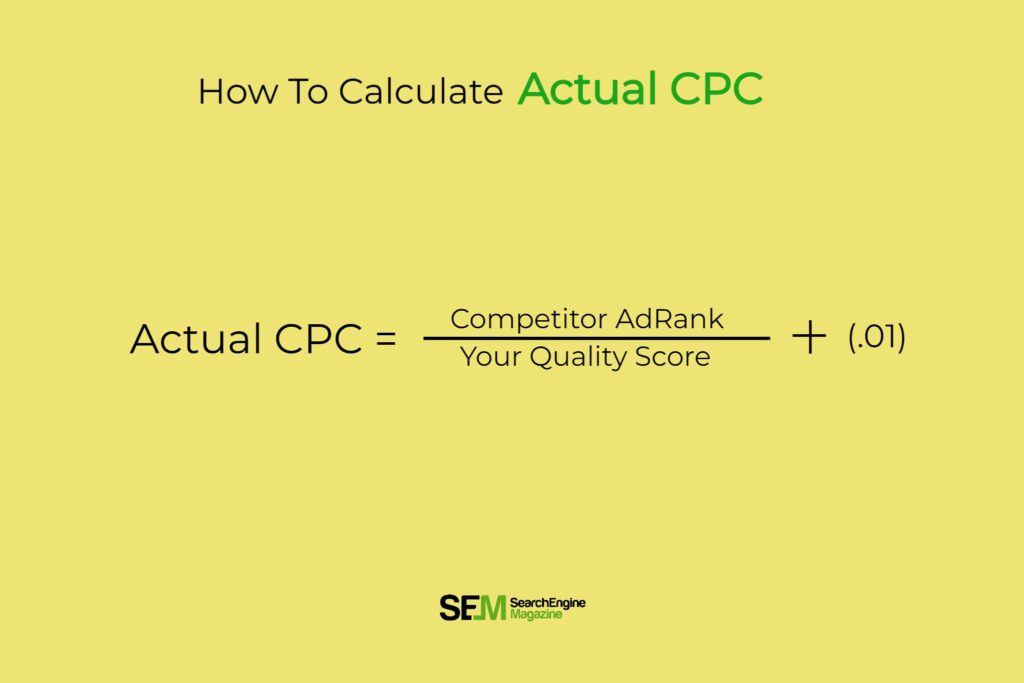 In this equation, you can see that the actual CPC that you pay for your ads is not completely on you, it depends on your competitor’s Ad Rank as well. In order to get the best result in your PPC campaign, you have to take care of the quality of your ads, their relevance to the query, your maximum bids, and your competitor’s rank. That’s how Google’s bidding systems work.
In this equation, you can see that the actual CPC that you pay for your ads is not completely on you, it depends on your competitor’s Ad Rank as well. In order to get the best result in your PPC campaign, you have to take care of the quality of your ads, their relevance to the query, your maximum bids, and your competitor’s rank. That’s how Google’s bidding systems work.
Before we conclude, here are some of the frequently asked questions from audiences.
Quality Score is a measure that checks how important and good your keywords, ads, and landing pages are. Ad Rank helps to place your ad on the SERP. It depends on how much you bid and other things like Quality Score, plus some extra factors.
Make your ads better by improving keywords, making engaging ad messages, trying out different styles of ads and confirming a related experience on the page where people land.
The ad auction decides which ads you see on the search results page and their placement. It looks at things like offers, ad suitability and expected clicking rate.
No, Google Ads keywords don’t care about big or small letters. “shoes” and “Shoes” would be seen as the same word.
Tracking changes looks at what people do after they click your ad, giving information about how well your campaigns are working.
Set your daily or campaign budget according to what you want from your ads. Google Ads lets you set top bids and money limits to keep costs in check.
Yes, the Google Display Network lets you aim your show ads at certain websites or groups of people for best results.
Ad extensions are extra details or links that improve your ads, for example site links, callouts or location extensions. These give more worth to people viewing the ads.
Ad targeting lets you get to certain groups using things like where they live, who they are and what interests or actions online do.
The actual CPC of an ad hugely depends on the maximum CPC bids of the ad showing one position lower on the page. And this is one factor that the Google ads system uses to calculate an ad’s actual CPC.
Read Also –
Mashum Mollah is the feature writer of SEM and an SEO Analyst at iDream Agency. Over the last 3 years, He has successfully developed and implemented online marketing, SEO, and conversion campaigns for 50+ businesses of all sizes. He is the co-founder of SMM.
View all Posts
How To Know If Someone Blocked You On iMessag...
Apr 16, 2025
7 Website Design Mistakes That Are Hurting Yo...
Apr 16, 2025
Programmable Dynamic SEO for Location-Based P...
Apr 15, 2025
Google Boba Game: How To Play This Fun Game B...
Apr 11, 2025
Which Is The Best Video Search Engine Of 2025...
Apr 11, 2025